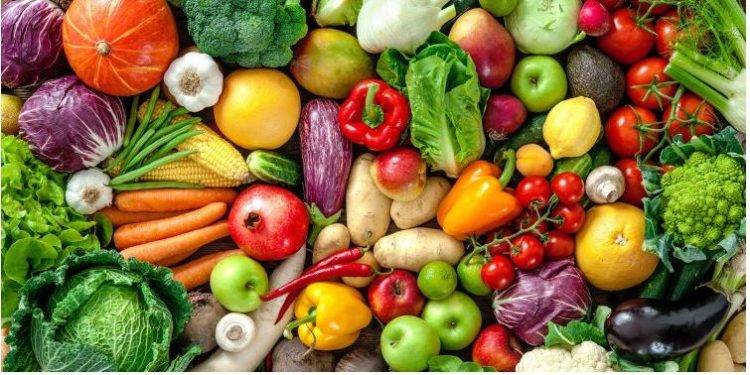Vegetable sellers in the Central Business District (CBD) of Takoradi are expressing growing concern over the recent ban on vegetable sales imposed within the Sekondi-Takoradi Metropolis. This ban, introduced by the Western Regional Coordinating Council (WRCC), was enacted as a response to a cholera outbreak in the region, and it has left many local traders grappling with reduced sales and financial hardship.
On December 10, 2024, the WRCC took decisive action to stem the spread of cholera, which had seen a significant rise in cases and fatalities across the Western Region. The ban on vegetable sales was directly tied to findings from the Environmental Surveillance Unit, which revealed that a staggering 96 percent of cholera infections in the area were linked to food vendors, particularly those selling contaminated vegetables.
While the health risks posed by cholera are undeniable, the ban has sparked concerns among the vegetable vendors who rely on their sales to support their livelihoods. The impact of this restriction has been particularly severe as it coincides with the festive season, traditionally a time when demand for vegetables spikes due to increased food preparation for celebrations.
Grace Ababio, a vegetable seller from the Takoradi central market, spoke to the Ghana News Agency (GNA), explaining that the ban had placed her business on hold. "Selling vegetables is my only means of survival," Ababio said. "However, the lives and safety of individuals matter most, and so I have no choice but to adhere to the directive from the authorities." Despite understanding the importance of the health measures, Ababio expressed frustration, noting the hardship the ban has caused her and many other vendors in similar situations.
Madam Fati Abubakar, another vegetable seller in the Takoradi market, voiced similar concerns. She emphasized that vegetables are an integral part of many households, especially during the festive period when food preparations are at their peak. "Vegetables play a vital role during festive seasons, particularly in food preparation. We are calling on the authorities to reconsider their decision and implement measures for the proper handling of vegetables to help curb the spread of cholera," Abubakar stated.
The Western Region has been struggling with a significant cholera outbreak, with more than 910 reported cases and over 10 deaths recorded to date. As part of the region's efforts to control the outbreak, the WRCC issued a communiqué on December 10, warning vendors and traders against violating the ban. The council has also emphasized that anyone found breaching the ban will face prosecution under the Public Health Act, 2012 (Act 851). The authorities have urged the public to fully comply with the restrictions, as they are seen as a critical step in controlling the disease’s spread.
The vegetable vendors are now calling for urgent measures to address the economic impact of the ban. Many of them rely on daily sales to support their families, and the suspension of their businesses for an indefinite period is a source of deep concern. With the festive season around the corner, the timing of the ban has only exacerbated the challenges they face.
In an effort to mitigate the financial strain on vendors, some traders are suggesting that authorities explore alternative ways of managing the situation without resorting to a complete ban on vegetable sales. One suggestion is to introduce a regulatory system that ensures proper cleaning and handling of vegetables before they are sold to the public. This would help reduce the risk of contamination while allowing vendors to continue their businesses.
The WRCC’s decision to ban vegetable sales has sparked a broader conversation about public health measures and their economic consequences. While public safety remains the top priority, the livelihoods of countless small-scale traders are also at stake. The challenge for authorities lies in finding a balance between protecting public health and supporting the businesses that form the backbone of the region's economy.
The festive season is typically a time of increased business activity for vegetable vendors, who provide essential ingredients for families and restaurants preparing meals for celebrations. However, with the current restrictions in place, many vendors are left without an income during this crucial period, and the economic toll could be long-lasting if the ban continues for an extended period.
The Western Region’s cholera outbreak has also raised awareness about the need for better sanitation and hygiene practices across the region. Many vendors are calling for a more comprehensive approach that involves educating food vendors and the general public about proper food handling and hygiene standards. Such efforts could help prevent future outbreaks and ensure that businesses can continue to operate safely without the need for drastic measures like a full-scale ban.
As the situation continues to unfold, Takoradi’s vegetable sellers hope for a quick resolution that allows them to resume their businesses while still addressing the cholera crisis. They are looking for solutions that balance public health with the economic realities of their trade. In the meantime, they are left to navigate the uncertainty brought about by the ongoing health crisis and the ban that has disrupted their livelihoods.
The authorities face a challenging task, but they must act swiftly to manage the cholera outbreak while also considering the economic well-being of local vendors. It is clear that a collaborative approach that includes both health measures and economic support is essential to helping the region overcome this crisis and return to normalcy.



No comments yet
Be the first to share your thoughts!